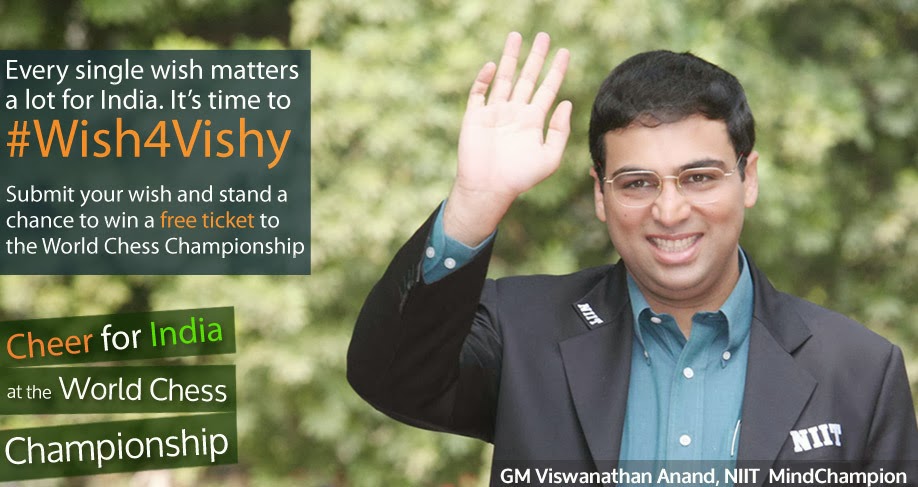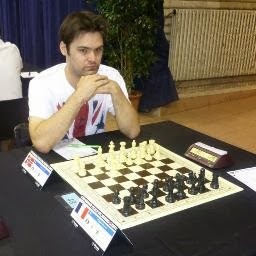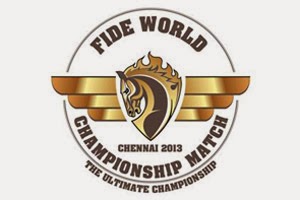How is the person behind the legendary name?
I am just a normal guy who got good at chess. I am laid back and love to chill at home when I’m not playing. I like listening to music and reading on politics, science and economics.
You started young…
I started playing chess when I was six and just enjoyed it. I used to play at a chess club on weekends. I particularly enjoyed playing blitz games and it’s there that I started playing fast.
Was it very difficult back then?
In the 80s, India still didn’t have a Grandmaster so we didn’t have the benefit of professional coaches. So till 1991, I trained by myself.
For my tournaments, I had to travel a lot in Europe. And in those days, it was much more difficult to travel. You had to get a lot of permissions for foreign exchange, and other things. But my parents would try and see that all these problems were sorted so that I could enjoy chess.
As for me, I didn’t really mind all the travelling, and actually enjoyed travelling and playing in tournaments. I just wanted to play… so any opportunity I got, I played.
Were there challenges and sacrifices?
Well, every sportsperson has to make a lot of sacrifices and choices along the way. And in each stage of your career, the challenge differs and you have to rearrange your talent to be on top.
Since I was the only Indian in most tournaments, information was more difficult to access. As an Indian, you were behind the Soviet Grand masters in preparation. Today, thanks to technology and the Internet, there is a more level-playing field and geographical locations don’t matter much.
How important is mental fitness to you? What do you do to stay mentally fit?
Quite. I think mental fatigue is more difficult to handle than physical fatigue. When the body is tired, we can sleep really well. But if the mind is tired or worried, it’s very difficult to sleep. I try to keep my mind calm and happy. So before an event, I try to switch off and take some time for myself—take a small holiday or do something different just to recharge my batteries.
And what do you do to stay physically fit?
Being healthy is very important especially in sports. In chess, since we have to prepare for about 7 – 8 hours a day, physical fitness is as essential as mental fitness.
Also as sportspeople, we travel for 6 – 8 months to different countries. If we are not healthy, our bodies will not be able to keep up. Very simply, even if you have something as common as ‘common cold’, you can’t compete at your 100 per cent. So we try to improve our stamina and our general resistance to withstand the strain of competing.
How important is eating right for you? Do you have any secret brain foods?
Eating right is important for a healthy life. I don’t really have any brain foods. But I try to eat correctly and avoid heavy foods before a game. I try to get a good breakfast and a light lunch when I am playing or working.
Moving on, does your play get affected by your emotions?
For me, as it is for everyone, feelings determine performance. Only when you are happy or feel good about yourself can you play well. I try to keep my life simple, as chess itself is very complicated.
Rapid fire
Favourite book…
One to Nine: The Inner Life of Numbers by Andrew Hodges
Favourite music…
Music of the ’90s
Favourite cuisine…
Thai, Indian, Italian…but I am a foodie, so I like anything that’s different and tasty.
Role model…
Bobby Fischer & Mikhail Tal
Health is…
the ultimate necessity
Positive attitude…
is the best companion
One driving philosophy…
Enjoy what you do and relish each challenge
Best de-stresser…
sleep and music
Happiest moment till date…
Any victory is a happy moment
Relationship with God…
I pray and believe that it gives me strength
If Spain is home, then India is…
India is home, Spain is a base for training and tournaments.
What makes you most happy?When I do something well, it gives me immense satisfaction; I feel very happy. In life, there are many things that make one happy—being with family, travelling, competing.
What do family and friends mean to you?
They make life special. Family and friends like you for what you are rather than ‘who’ you are. I meet up with school friends often and after the first five minutes, I stop being Viswanathan Anand, and become just Anand who sat in the second row in high school.
Any really close friends?
I have some friends who have been more like family. When I used to travel in Europe for tournaments, I found it very difficult to go back to India and return between tournaments.
Nieves and Maurice, my closest friends in Spain, would insist that I stay with them. They more or less adopted me and I am more like a son to them.
And your family…
I have been quite fortunate to have a lovely family. My parents never forced me—either to play chess or to study. They allowed me to enjoy my childhood. Even when chess was taking me away from school and college, they were very understanding.
Now, my wife travels with me and it’s nice to have someone with you, whom you can trust and who shares your joys and defeats.
Does failure affect you?
It’s impossible to be unaffected. When failure stops affecting you, you stop being a sportsperson. I try to be practical: learn what went wrong, and swiftly move on.
How do you handle the criticism that follows failures?
I have won every rapid title many times over. Someone once told me that it’s news when I lose a game and not when I win… it’s strange.
I think if you lose one game, it’s not the end of anything. If I kept answering to what each one said, I would never have had time to be World Champion.
Winning in chess requires strategy. Does one need strategy to succeed in life as well?
Of course! Both chess and life are inter-related. My strategy [in both] is to be happy, enjoy what I do and constantly learn.
Once you feel you are invincible, you become vulnerable. So I try to learn new areas in chess and experiment with my play. At first, the results may not be as you expect, but you have to hang in there.
Your advice to Complete Wellbeing readers…
Each one has a dream. You should follow your dream, have ambition and focus. Moreover, you should follow your own dream and not someone else’s. The path is never smooth but you should learn to enjoy the journey.
This interview was first published in
the October 2009 issue of Complete Wellbeing.


















































